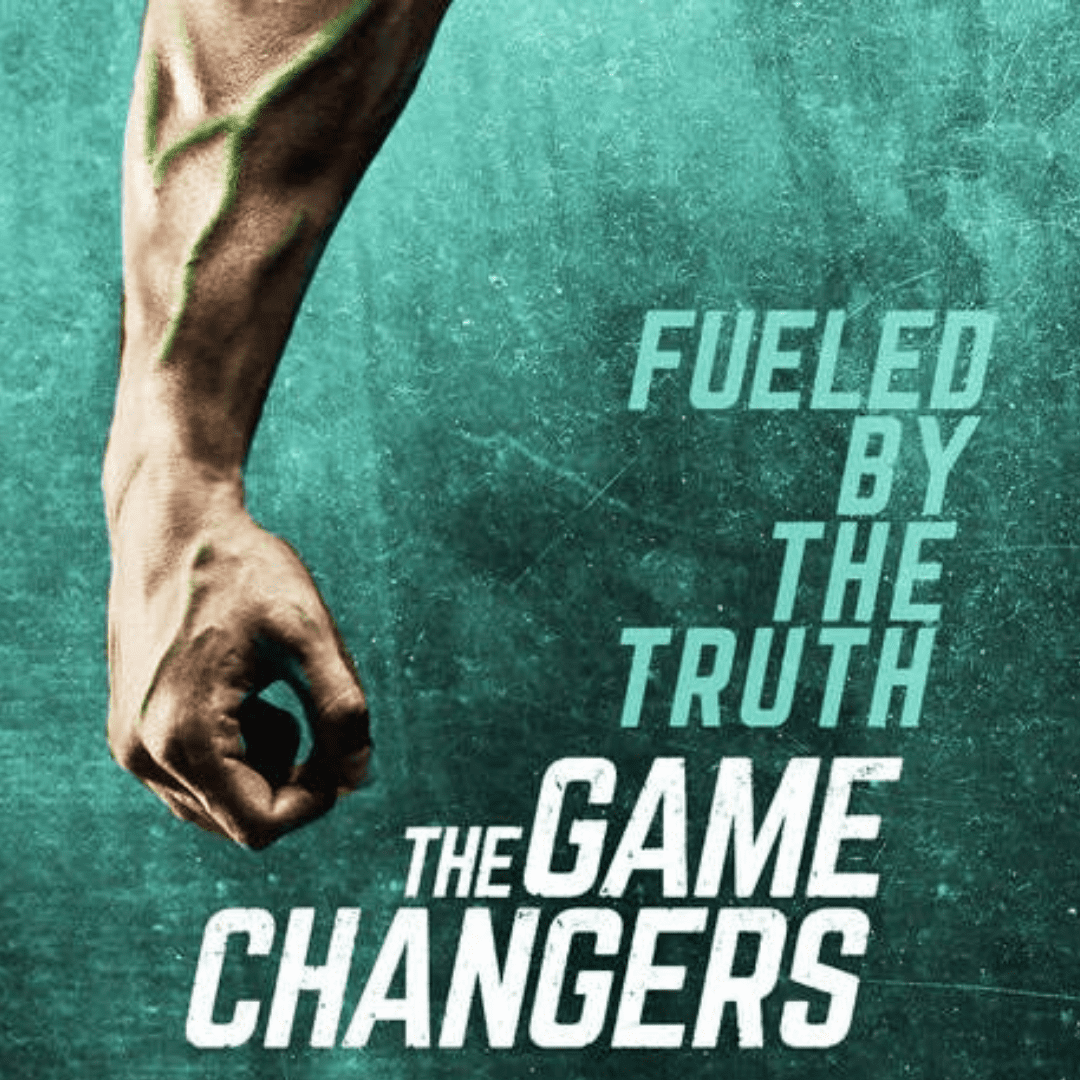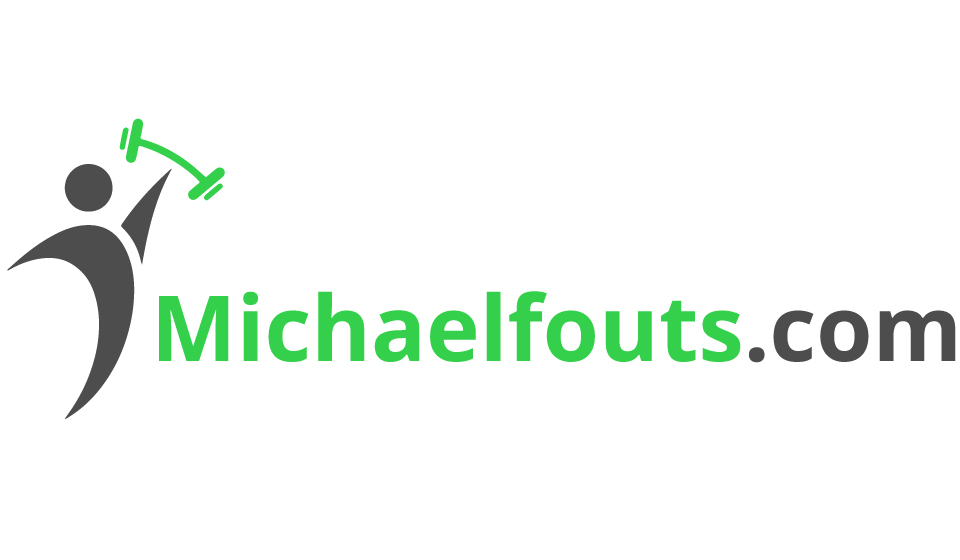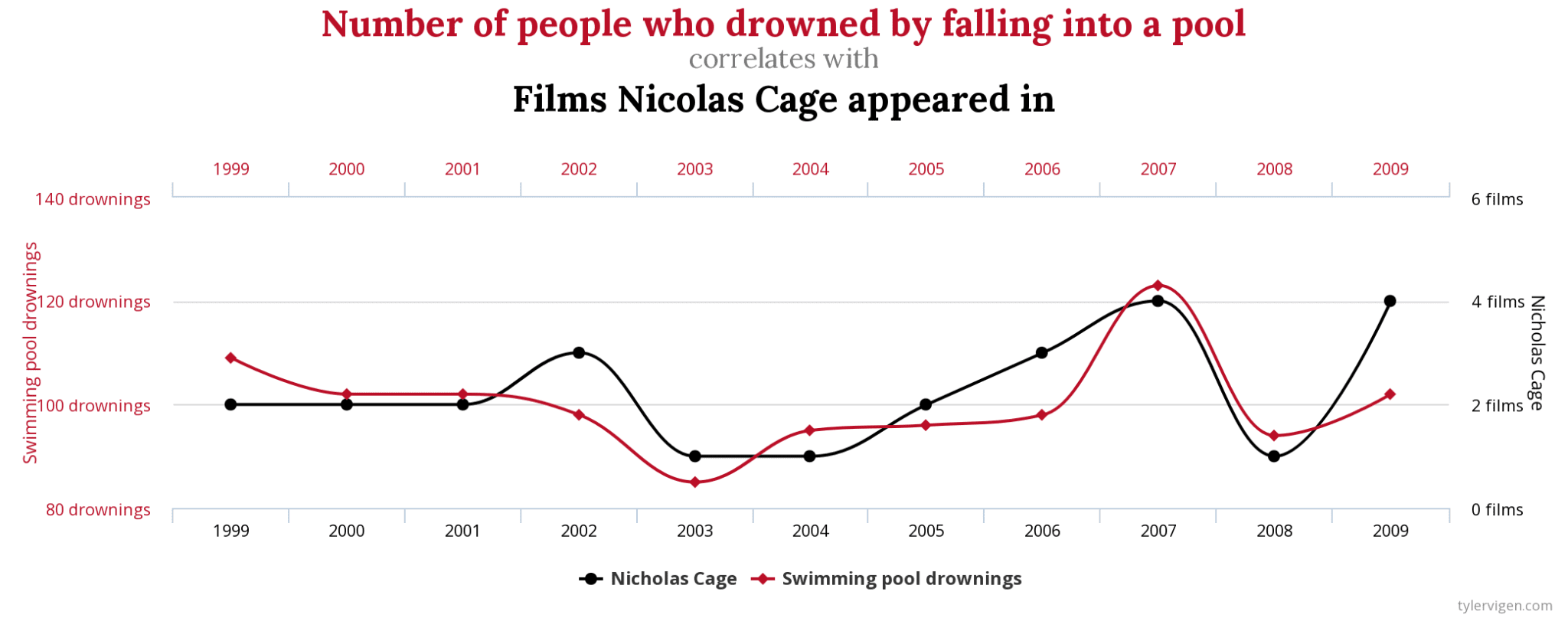6 Things To Consider About The Game Changers “Documentary”
Estimated reading time: 13 minutes
I have documentary in parenthesis because I, and many others, don’t consider it a documentary. A documentary gives both sides of the story and lets the reader make their own informed decision. This a film, not a documentary, some might even call it propaganda.
I won’t go over all of the issues in this film, rather I want to give you 6 things to consider when thinking about this film.

But before we review these 6 things, I want to make a Disclosure:
- I’m not vegan, and have not tried any variation of vegetarianism (lacto, ovo, pesco) – or at least not on purpose.
- I have nothing against being a vegetarian, or being vegan. I think there are great reasons for doing so, especially from a moralistic standpoint. I choose to eat meat because I enjoy the taste of it, it contributes to a healthy diet (more on this later), and I prefer to choose meats as my predominant protein source in my diet.
- I pull a lot of information for this post, from this post and this one. Some might say this is an example of confirmation bias, which based on the definition itself is true. But, the two authors are both very credible in experience and education, and respected names in the health and fitness writing space. In the second post, there are numerous references for you to fact check anything that is being argued.
- The only thing I have to gain from this post is informing fellow readers, and through exposure, etc. might lead to a future client(s). That and possibly a very small amount of money from google adwords, like we’re talking maybe 1$ in a month at my current traffic analytics. So really, I don’t have much to gain and I’m not trying to persuade you one way of the other. I simply want to inform people about a few things to think critically about in regards to this film.
Alright, with that disclosure out of the way, something the The Game Changers never did, let’s address these 6 points:
1. Conflict of Interest
Just like I did, there was no disclosure of any sorts in this film in particular no mention of any conflicts of interests. When you take a look at who stands to gain from this film it’s not a good look for them:
- Executive Producer: James Cameron – he is the founder and CEO of Verdiant Foods, an organic pea protein company.
- Suzy Amis Cameron, Executive Producer – Founder, Verdiant Food
Many of the actors and ‘experts’:
- Arnold Schwarzenegger, Actor, part owner of ‘Ladder’, a supplement company that sells some vegan products
- Dr. Dean Ornish – Author of Undo-it!, leads vegan retreats and sells online programs and developer of the Ornish Diet (very low fat, high carb, low protein)
- Dr. Aaron Spitz – Author, The Penis Book, a plant based book on penile function
- Dr. Robert Vogel – Author, The Pritikin Edge, a plant based book.
- Dr. Caldwell Esselstyn – Author, Prevent and Reverse Heart Disease, Cookbook, a plant based cookbook
- Dr. James Loomis – Contributor to forksoverknives.com, which includes plant based meal planning
- Dr. Kim Williams – Vegan Cardiologist
- Dr. Columbus Batiste – Contributor to forksoverknives.com
So as you can see, the film instantly loses credibility on this basis alone.
2. Cherry-Picking Data
As wikipedia puts it, cherry-picking is: the act of pointing to individual cases or data that seem to confirm a particular position while ignoring a significant portion of related cases or data that may contradict that position. This happens a lot in this film.
One of the primary cherry-picked themes in this film was the idea that eating plant-based suggested elite Athleticism. Whereas the real truth is there are elite athletes, be it strength, endurance, sports, from multiple dietary backgrounds.
“Think of every possible dietary option: keto, The Zone, carnivore, vegetarian, intermittent fasting, keto-veganism, IIFYM, the standard American diet, etc. You’ll find successful athletes in all of these categories” – Christian Thibaudeau
Nate Diaz and Patrick Baboumian were two examples:
- Nate Diaz, a plant-based fighter, beating Conor McGregor, someone who they highlighted as eating a steak everyday. What they don’t mention/include: Conor had to go up 2 weight classes for this fight, and there was a rematch where Diaz lost to McGregor. Also, Diaz also lost ten fights prior to McGregor – all fighters who weren’t vegan.
- Information about the strongman Patrick Baboumian. Layne Norton highlights: “Information is not disclosed that 1) the Strongman organization that Patrick competes in does not drug test…2) they do not disclose that Patrick chugs 4 protein shakes per day to pump his protein up to 410g per day…3) the triumphant climax of the film is Patrick, carrying 1223 lbs which is heralded as a world record in the film. He broke the record in 2013, so what was shown in the film was an obvious re-enactment. What the film failed to disclose was that both Brian Shaw and Hafthor Bjornsson have carried 1565 lbs in 2017, over 300 lbs more than Patrick’s record.
I really like the example Christian Thibaudeau used regarding cherry-picking data and how easy it is to persuade an opinion, I’m going to paraphrase it below:
“Trivia time: Name two things that Usain Bolt (track and field), Mat Fraser (CrossFit), Michael Phelps (swimming) and Wayne Gretzky (hockey) have in common?
Answer: They’ve been the very best in their sport, and they were fast-food addicts.
Michael Phelps’s daily dose of McDonald’s is well documented. Usain Bolt loves his McNuggets and KFC, which he ate daily during the Beijing Olympics. Mat Fraser ate a Big Mac and fries 30 minutes before the last event at the 2016 Northeast regionals. Gretzky was like pretty much every Canadian hockey player – raised on arena food (burgers and hot dogs).
Therefore the key to athletic success is eating fast food. It must be that the saturated fat helps increase testosterone, which has a positive impact on muscle growth, strength, and competitiveness. Furthermore, the high sodium content of the food will help prevent dehydration and optimize muscle contraction. Fast food is very effective at preventing hyponatremia (sodium depletion), a severe condition that leads to a loss of energy, irritability, confusion, cramps, and even seizures.
Of course, this is a load of crap. Fast food isn’t optimal for athletes (or anybody).”
3. Nutrition Research
About Nutrition Research In General as it pertains to Netflix documentaries and the general media:
A lot of nutrition research is observational research, either cohort (retrospective – looking back, or prospective – looking forward) or cross-sectional studies.
- With retrospective cohort studies you look at old data, usually collected by hospitals or other studies, and then look for associations between different groups (cohorts). With prospective, you collect data in the present and follow up in the future.
- With cross-sectional studies you use data as a “snap-shot” in time to examine correlations between certain variables.
The problem, and where people misinterpret the data is:
- Correlation does not imply causation. To see some bizarre examples, like the one below, see this site, eg. Nicolas Cage was not the reason that people drowned in pools, and vice-versa, despite there being a great correlation between the two variables.

- With the types of studies mentioned above, or other forms, there is often very limited nutrition data collected throughout the study. They might collect data twice, via a single day dietary recall, a food frequency questionnaire, 3 day food record, or 7 day dietary recall, over the course of the whole study. That data is then used to describe the study participants daily eating habits over that time span. Not the best, but it’s the best than can often be done given man power and using humans as study subjects.
So when you’re evaluating nutrition claims you often need to dig a little deeper and see what the original research says. If its observational research, (like Nicolas Cage and people drowning in a pool) all it shows is that there is a relationship between the two and further research is needed. If it’s information from systematic reviews, meta-analysis, or randomized controlled trials then you can be more confident in the information that you are reading. EVEN THEN, nutrition is one variable amongst many (how much you exercise, etc.) that effects your health so you still need to be cautious about what you consider an absolute truth.
About Nutrition studies in this film:
I actually didn’t look at any of the research studies from this study, mainly because many other red flags popped up that discredited much of what I was seeing so I didn’t want to waste my time trying to further investigate. But, this article did and this is what they said:
“There are a handful of studies included in this film that are pilot studies consisting of a very small collection of test subjects and most of the results have not been duplicated. These studies almost all conclude with something along the lines of “further investigation is needed”. The filmmakers leave this out.”
4. Recovery
James Wilks, the narrator and former UFC fighter, suggests that his vegan diet was critical in his recovery from his knee injury. When it comes to recovery the most important variables, listed in order of importance, are: sleep, calories, macronutrients (most importantly protein), and then micronutrients (vitamins). The vegan diet would positively affect the micronutrients the most, and might even negatively affect calories as vegans on average tend to consume less calories (3). So really, the other variables kept constant, a vegan diet isn’t going to make a huge difference.
5. Being Vegan Doesn’t Guarantee Optimal Health
Sure, most vegan diets are healthy. But that doesn’t mean that one with meat, or even dairy, can’t be equally as healthy or even superior. I won’t dig into this too much as this point could get quite lengthily, but let’s address two things said in the film:
1. “The only diet that has ever been shown to reverse heart disease is a plant-based diet.”
This is just factually wrong, the Mediterranean Diet and the DASH diet are two diets that have been shown to do this, both contain meat, and are recommended diets by the Heart and Stroke Foundation of Canada (and Other Organizations).
2. “Eating meat increases Inflammation.”
This is a misattribution and false generalization to meat based on a few things. Let’s look at what the research says. This study, which had a nice sample size of 1100, showed that there was no difference in inflammation in healthy subjects who consumed more than 9 oz. of red meat per week compared to those those who ate less than 9 oz. of red meat per week.
Another study, that didn’t use healthy subjects rather those with type 2 diabetes, looked at the effects of comparing plant-based protein vs. animal-based protein over the course of 6 weeks. One group was assigned to a high plant-based protein diet, the other to a high animal-based protein diet. Both diets were identical from a caloric (which was isocaloric) and macronutrient (how much carbohydrates, fat, protein) standpoint. The result: both groups lost weight and decreased inflammation to the same extent.
One counter argument to vegan food decreasing inflammation, highlighted (and paraphased below) by Layne Norton:
- “The wife of a vegan NFL player can be observed cooking vegan chicken wings, vegan mac and cheese, vegan burgers and vegan peanut butter cheesecake. All of these foods are heavily processed and very calorically dense, but are implied to be ‘healthy’ since they are vegan. A study examining inflammatory responses to vegan cheese vs. regular cheese showed that vegan cheese caused a greater increase in the inflammatory marker CRP than the regular cheese.”
So what gives? Weight gain and obesity are actually the biggest contributor to inflammation. So, regardless of what type of eating preference you have it’s the excess of calories that are the most important factor. Eating meat, in particular lean meat (7), can be a part of a healthy diet and it can help reduce inflammation, not increase it. One thing worth noting, vegans on average tend to eat less calories (3), for a variety of reasons, so that could make sense for some people to make this association.
6. “The Supplement Effect”
I call “The Supplement Effect” the fallacy of associating one result solely based on one variable. This is commonly done with supplements, hence the name.
What I mean in regards to this film and being vegan: people who are choosing to eat vegan are ALSO choosing to do a host of other things better for their health like exercising more, eating less fast food (vegan options are more limited), etc. So the reason for many of their positive health outcomes are definitely a result of the combination of those other things too, not just because they are eating better – albeit eating better has a definite impact, it’s not the sole reason.
There is one thing that the film did get right: Farming
I’m not well versed on this, but I like what this article said:
“The last part of the film highlights a major issue with our industrial society today. As it stands, livestock production uses 83% of the world’s farmlands and an unreal amount of water. To be honest, there is a lot of waste in farming and sustainability should be considered. If you want a real case for “eat less meat” it’s here, in this part of the film. The choices we make every day on where to buy our meat will have an impact on the future of farming. Buying meat from a sustainable farm that uses pasture management, maintenance of biodiversity, soil management, and water reclamation is a small step in the right direction for building a future for livestock farming.”
However, apparently they skew the results a little bit. Layne Norton says:
“They claim that the emissions from meat are more than all of the total forms of transportation in the world combined. This is quite simply not true. Meat production accounts for about 3% of the USA’s greenhouse emissions (13-18% in less developed countries), while transportation is 80% of the greenhouse gases from the USA (64% worldwide). So before you admonish someone for eating meat and how bad it is for the environment, if you drive a muscle car but admonish others for eating meat because of how bad it is for the environment, you might want to look in the mirror.”
Despite a possible negative tone insofar I think generally if everyone was to watch this film and treat everything said in the film as gospel, I think it be a net positive for the general health of everyone. If this film encourages people to eat more veggies, I’m all for it.
If you’re reading this and you’re vegan, or thinking about becoming vegan and wanting to try it, know that I don’t think there is anything unhealthy about being vegan; in most cases it’s the healthier approach, provided you take into account some of the nutritional deficiencies that can accumulate over time like vitamin B12 – something also brought up in the film. What I don’t agree with is the one-sided argument that the film presents, that everyone should be vegan.
“There are healthy, muscular, high-performance omnivores. But there are also healthy, muscular, high-performance carnivores. Likewise, there are healthy, muscular, high performance low carbers and high carbers” – John Berardi
For more information about anything in the film that was not brought up in this post (cloudy blood after meat consumption, roman gladiators bone density, plant-based diets are superior for endurance athletes, erectile strength and frequency, carb-consumers gain more muscle mass, etc.) give this or this a read – they both cite original research for fact checking.
Till next time,
-Mike
Other Good Reads:
- https://dieteticallyspeaking.com/an-evidence-based-review-of-the-game-changers/
 Author Bio: Michael Fouts
Author Bio: Michael Fouts
Mike blogs on this website – michaelfouts.com – obviously, but also owns a Mobile and Online Personal Training Company called OverHaul Fitness. Mike loves helping people manipulate their body composition; losing weight while retaining muscle, or putting muscle on while minimize fat gain. Mike’s spare time is spent being active (hockey, squash, triathlons), eating sandwiches or beef jerky, or watching thought provoking movies or tv series (like Westworld). Connect with Mike via email: Mike@overhaulfitness.ca, or Social Media – links below:
If you’d like to work with me as an Online client you can find out more information here.
If You Want To Be In The Know About…
New exercises to try, recipes to make that are both healthy & delicious, or relevant workout programs, meal plans, or popular blog posts? Put your email below and i’ll add you to my inner circle email list (no more than 1 email per month, often less).



